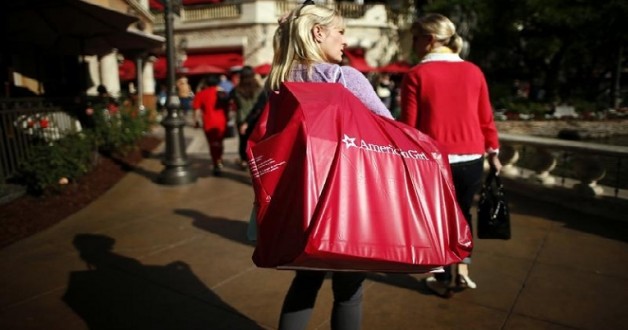Franchising, retail, business

27/11/2014
Black Friday triggers memories of early morning alarms, long lines outside stores and the start of the holiday season. But these memories have evolved since millennials like me were young children. Black Friday is no longer defined as a specific space or time, with many retailers like Amazon and Walmart participating in Cyber Monday and others starting sales on 1 November.
But there is an important aspect of young consumers that is often overlooked: 59% of millennials take note of the companies behind the brands, while 71% believe brands should be environmentally friendly, according to a study released by the Intelligence Group.
With this young demographic expected to earn $3.4 trillion a year by 2018 – more than baby boomers consume today – it is time brands paid more attention. One way to do this is to actively engage through sustainable products and simple messaging on sustainability, something that the World Economic Forum highlighted in its Engaging Tomorrow’s Consumer Report this year.
The success of sustainable clothing, for instance, is evident in the excitement shown by individual investors on Kickstarter. It proves that eco-friendly products are not only a “nice to have” but a differentiating factor that will attract loyal millennial consumers.
French luxury goods company Kering has created an environmental profit-and-loss statement that highlights carbon emissions, water and land use, water and air pollution, and waste. Not only do they look at manufacturing practices, but they also consider the source of raw materials, processing, assembly and retail – aspects that many companies ignore. In a similar attempt to communicate externally, LVMH, the premier luxury brand that encompasses names such as Louis Vuitton, Sephora and Edun, has started LVMH Green Week with a focus on the circular economy.
Different messages need different vehicles, and these companies are starting to test what works well. Organizations such as the Sustainable Apparel Coalition help facilitate this communication through tools like the Higg Index, which measures the environmental and social footprint of clothing and footwear companies. While it is difficult to measure success in this area because of varying definitions of sustainability, early movers will have an advantage of experience and value capture when it hits the mainstream, which is sure to happen very soon.
A second critique is that millennials don’t have the money to spend on ethically sourced and produced clothing. Nonetheless, we see mainstream companies like H&M testing a model for sustainable consumption through lines such as its Conscious Collection, which aims to source 100% of its cotton from sustainable sources by 2020. Others argue that “fast fashion” discourages production of the high-quality, longer-lasting products needed to prevent the massive waste and re-creation required in quick-moving trends.
This Black Friday, we will see many innovations related to check-out lines, start and end dates for deals, and vehicles through which purchases can be made. What will be most interesting to observe, however, will be whether brands – especially clothing lines – respond more seriously to the growing needs of tomorrow’s consumer.
Fonte:http://forumblog.org/2014/11/what-black-friday-tells-us-about-tomorrows-consumer/?utm_content=bufferdd7d7&utm_medium=social&utm_source=twitter.com&utm_campaign=buffer